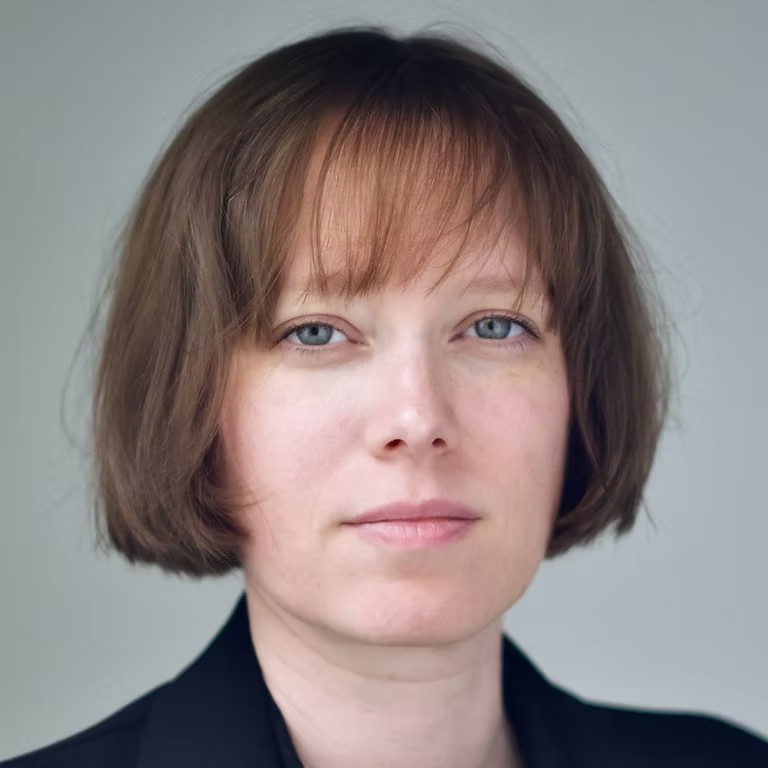About this event
In 2024, the Nobel prizes in physics and chemistry were awarded for breakthroughs in AI research: the first for fundamental research on artificial neural networks and the second for developing an AI model that solved a long-standing protein folding problem. Scientists in nearly every field are reaching for new powerful machine learning and AI methods to see if AI has been the missing piece to solve longstanding problems and make new discoveries. Not only has AI started to change how science is done, but also how science is taught, organized, and credited. Some have called AI an equal scientific partner, crediting AI with authorship on papers. Others have gone so far as to suggest that in the next 10-20 years the figure of the human scientist will disappear, with only AI scientists remaining. But there are also increasing critiques and scepticism that AI has hit a cliff, creating more problems than solutions. Some have criticised AI’s role in fabricating data, de-skilling scientists, limiting scientific reproducibility, and more. In this Technomoral Conversations panel we will discuss the ways in which AI has transformed science for better or worse, what it means for AI itself to be seen as a scientist, and whether AI can truly fulfill its promise for science.
The Technomoral Conversations series brings together leaders, creators and innovators from academia, technology, business and the third sector in a ‘fireside chat’ format to discuss futures that are worth wanting. Chaired by the Centre for Technomoral Futures' new Co-Director, Dr Emily Sullivan, this Technomoral Conversation will feature Dr Eran Tal (Canada Research Chair in Data Ethics and Associate Professor of Philosophy at McGill University), Dr Arfon Smith (Senior Fellow at Schmidt Sciences on the Science Systems team), and Professor Anna Scaife (Professor of Radio Astronomy and Turing AI Fellow, University of Manchester).
This event is a collaboration between the Centre for Technomoral Futures and the Edinburgh Futures Institute.
Please note this is a hybrid event.
This event will be live-captioned. If you would like to attend with BSL interpreters, please let us know by contacting the event organisers at ctmf@ed.ac.uk
Important notice: This event will be photographed/recorded, and images may be used for future marketing, promotional or archive purposes. If you would prefer not to be photographed, please let organisers know at the event.
Speaker biographies:
Dr Emily Sullivan (Chair) serves as a Co-Director of the Centre for Technomoral Futures in the Edinburgh Futures Institute. She is a senior lecturer at the University of Edinburgh’s Department of Philosophy. Emily joined the Futures Institute in 2025 following academic appointments in the Netherlands at Utrecht University and Eindhoven University of Technology. She is an associate editor for The British Journal of Philosophy of Science and in 2025 she was awarded the Simion Award from the International Association of Computing and Philosophy. She is currently the PI on an ERC Starting Grant (2025-2030) that conceptualises and evaluates machine learning models across science and society as a type of toy model. In this project, she bridges epistemic and ethical issues in simple computational models with complex modern day machine learning models.
Dr Eran Tal is Canada Research Chair in Data Ethics and Associate Professor of Philosophy at McGill University. His work deals with the epistemic and ethical dimensions of data collection, data analysis, and data use in the sciences. He specializes in philosophy of measurement, an area within philosophy of science that deals with the concepts and problems involved in designing, operating and interpreting measurement procedures. His current research projects concern the conceptual foundations of psychometrics, the responsible design and use of mental health questionnaires, and the ethical and social implications of big data and machine learning for healthcare.
Dr Arfon Smith is a Senior Fellow at Schmidt Sciences on the Science Systems team. His current interests centre on: 1. Research software and the role of research software engineers – how targeted investment in both accelerates discovery across disciplines. 2. Research data-management infrastructure – how robust, interoperable systems maximize scientific return on investment and enable new research communities. 3. AI as a science accelerator – how AI, particularly generative models, is transforming research software development and scientific discovery, creating new opportunities for automation, participation, and innovation.
Prior to Schmidt Sciences, Arfon was a Director of Product at GitHub, responsible for integrating AI into the core GitHub product experience. An experienced leader and strategist with extensive product, data science, and engineering background – especially in open source – he loves building deep partnerships across product, design, data science, and engineering and is fluent in the language of each. Arfon has led teams across organizations of varied sizes, scales, and sectors. Most recently, he founded and led the Data Science Mission Office at the Space Telescope Science Institute (stsci.edu) in Baltimore, home of the James Webb Space Telescope and the Hubble Space Telescope.
Prof Anna Scaife is Professor of Radio Astronomy at the University of Manchester and an external advisor to the Department for Science, Innovation & Technology. Her research focuses on the use of AI for discovery in data-intensive astrophysics and in 2019 she was appointed as one of the five inaugural AI Fellows of the UK’s Alan Turing Institute. In 2020, Nature described her as one of six researchers shaping the future of AI; she was named as one of top 50 AI Innovators 2022 by World Summit AI, and in the top 50 Women in AI 2022 by Inspired Minds. In 2014, Anna was honoured by the World Economic Forum as one of thirty scientists under the age of 40 selected for their contributions to advancing the frontiers of science, engineering or technology in areas of high societal impact. In 2017 she was awarded the Blaauw Chair in Astrophysics (prize chair) at the University of Groningen in The Netherlands for excellence in research, broad knowledge of astronomy and an outstanding international status in astronomy. In 2019, Anna received the Jackson-Gwilt Medal of the Royal Astronomical Society, awarded for outstanding invention, improvement, or development of astronomical instrumentation or techniques.




